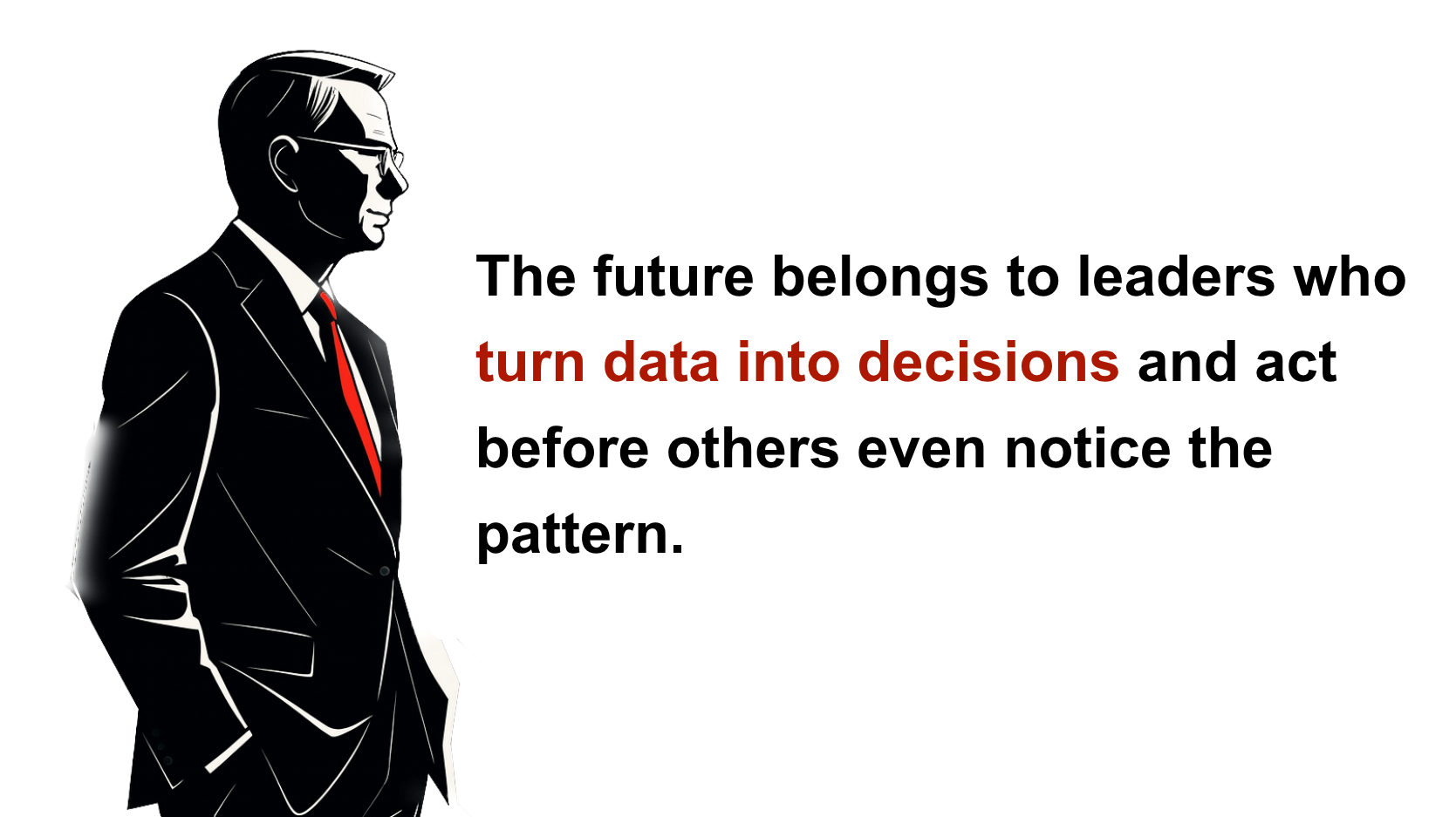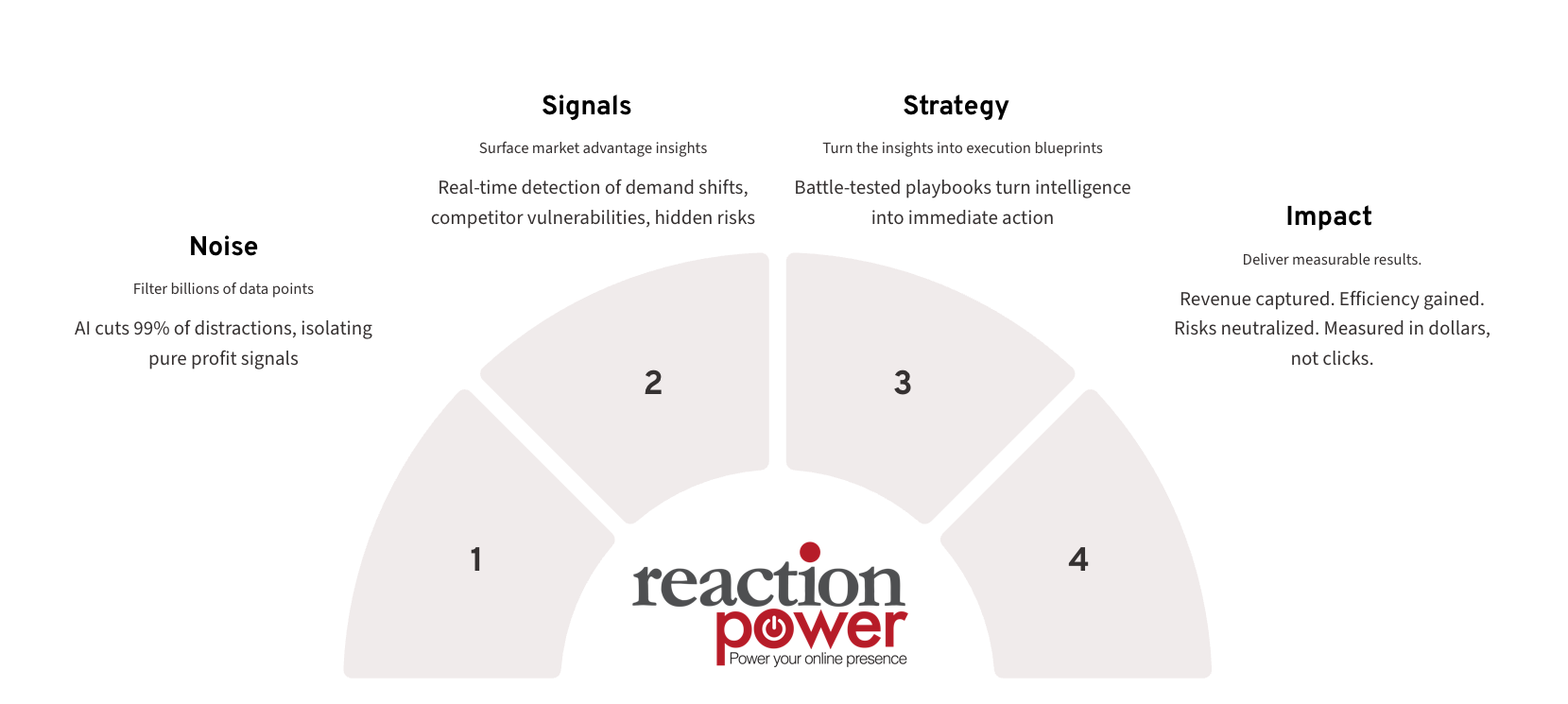Most companies think they have an AI strategy.
In reality, 72% of executives admit they’re experimenting without a clear plan.
It shows in stalled initiatives, rising acquisition costs, and competitors who move faster with fewer resources. So what do high-performing executives do differently?
Twelve years ago, while I was at Google, Eric Schmidt talked about business growth with AI.

We were already building toward this future. We obsessed over systems that could do the heavy lifting and collapse processes from days to minutes. Even then this was clear: Leaders don’t need more tools. They need time back, clarity, and outcomes – the ability to take decisive action and outperform rivals.
Today, the stakes are far higher.
If you feel both the promise and the pressure, you’re not alone.
AI can fuel real business growth, but only if you build the right strategy and avoid the hype traps that drain budgets and stall teams.
The Hidden Cost of Efficiency
Many leaders suspect what the metrics don’t show: Business is busy but not better.
Too many teams confuse motion with momentum. They are focused on tools, not outcomes.
Meetings that once sparked creativity turned into dashboard reviews. Teams that centered around people began orbiting platforms.
The organization looks “more efficient” but meaningful output is stalled.
How High-Performing Leaders Get the Edge
AI can create the illusion of progress while masking strategic drift. Leaders who turn to Reactionpower break that cycle.
We give executives a smart, fast, reliable way to move from vision to velocity—with predictive insight and deliberate execution that matches the pace of their ambition.
When capacity falls behind strategy, organizations slow down. Reactionpower closes that gap. Our experts operate as an extension of your team, delivering outcomes in days, not weeks, so your people stay focused on decisions that change the business, not the mechanics of assembling a point of view.
This is how leaders reclaim momentum that actually moves revenue, relevance, and results.
Why AI Strategy for Business Growth Often Stalls
The hype cycle is baked into Silicon Valley’s DNA. Three forces derail even the smartest organizations:
- The Fad: Every few years, a new technology is crowned the savior.
- Panic Adoption: Teams rush in, building complexity instead of capability.
- Metrics Over Meaning: Activity gets measured; outcomes don’t.
Speed increases, in the wrong direction.
What High-Performing Leaders Do Differently
Most people misuse AI. That makes it remarkably easy to outperform them.
Here’s what works:
-
Get Clarity
- The Problem: Most AI tools simply shift resources, forcing your best people to manage complexity instead of serving customers.
- The Action: Audit ruthlessly for time compression. Does tool stack demonstrably reduce time between insight and impact? If your team spends more time managing a tool than executing outcomes, eliminate it. We design Reactionpower to remove friction, not shift it.
-
Protect Human Judgment
- The Problem: Leaders delegate critical decision-making to black-box models, eroding hard-earned wisdom. AI does not replace leadership. It sharpens it. Experience is a decisive strategic asset.
- The Action: Protect judgment as IP. hardwire human judgment into every critical decision. Make “Human-in-the-Loop” a core operational rule, not an exception. Your competitive edge is the decisive judgment your AI supports, not the data volume it processes.
-
Measure What Moves the Business
- The Problem: Teams often confuse motion with progress. Adoption rates are good but pipeline velocity pays dividends. .
- The Action: Track what moves the business: revenue per opportunity, time from signal to sale, market share captured before competitors react. Everything else is vanity.
Lessons for Leadership
Tools don’t lead. Leaders do.
But the wrong tools cripple even the strongest leaders.
A decade of battle-tested experience has taught me a vital lesson: Tools that don’t get you faster to key outcomes are expensive distractions.
That’s why we built Reactionpower Signal Strategy™ – the only intelligence engine that identifies profit signals earl and turns strategy into sales.
You gain clarity on where momentum is building, where threats are forming, and where your next decisive move can create measurable impact, all while rivals are still scrambling through data.
The Reactionpower Edge: Chaos to Control
Reactionpower cuts chaos and gives you decisive control in 4 deliberate stages.

The Proof: What Happens When Leaders Get This Right
- 3x faster revenue capture in launch windows.
- Double-digit market share gains by acting earlier than rivals.
- 40%+ higher customer spend from aligning with emerging demand.
- 30% reduction in operational waste by reallocating spend to what grows margins.
The Cost of Waiting Is Compounding
Every quarter of hesitation compounds.
Competitors move. Markets shift. Advantage evaporates.
Leaders who dominate do one thing consistently:
they move first, with better intelligence and cleaner execution.
Reactionpower removes guesswork and execution gaps so your team can see clearly, act decisively, and move at market speed.
The Decision in Front of You
If AI’s potential feels just out of reach, you’re not alone.
But you don’t have to stay there. For a decade, we’ve cut through the hype and delivered real results – scalable, measurable, and undeniable.
AI is reshaping your industry.
Will you be the executive who saw it coming and moved decisively, or the cautionary tale in someone else’s case study?
Let’s build the edge your competitors can’t see coming.





